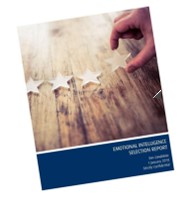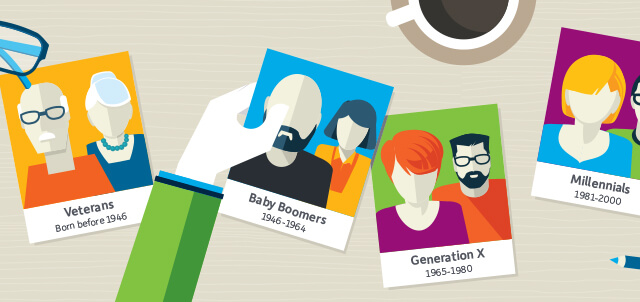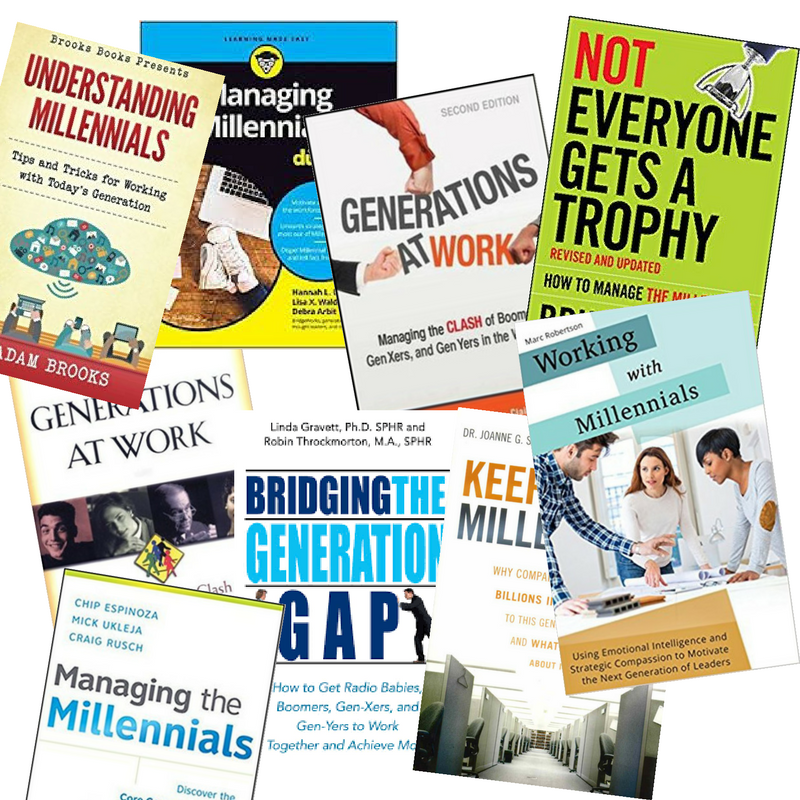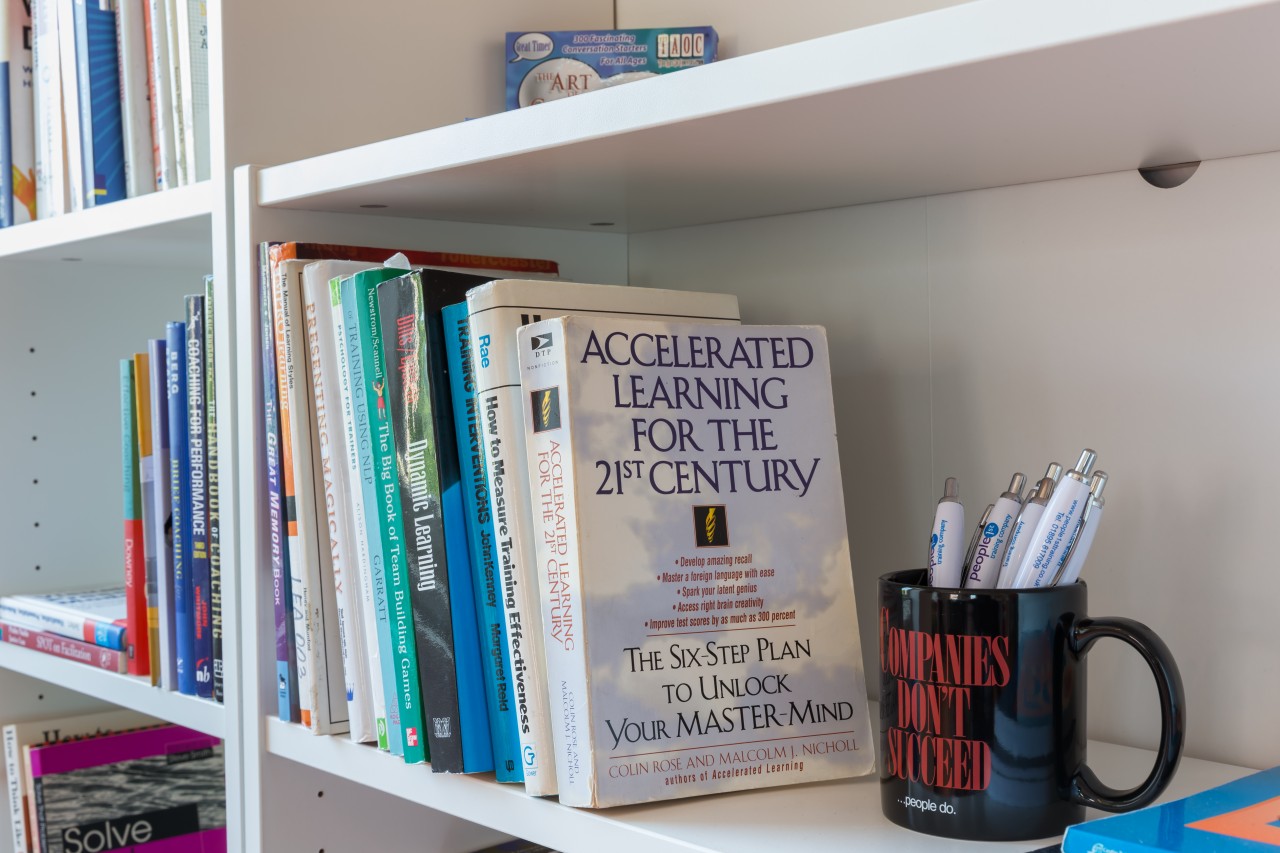Fast Forward International d.o.o.Rašica 20
1315 Velike Lašče
Slovenia
E-mail: jude@fastforwardonline.com
If you want more people coming to work at their best, then we would love to help you to achieve this.
Contact Us Today

A Learning Consultancy focuses on an organisation's level of learning and development needs. It offers a complete service from identifying learning needs through to evaluation of results. The development of a specific programme which ensures you will get the changes you want and whatever the content is that is needed is researched, prepared and delivered in a way that is unique to your organisation.
Emotional Intelligence is a set of skills that help us better perceive, understand and manage emotions in ourselves and in others.
These skills are just as important as intellect (IQ) in determining success at work and in life. Emotions influence, both productively and unproductively, our decisions, behaviour and performance.
There’s also a wide variety of research and articles on the importance of hiring FOR emotional intelligence. But in all those blogs and pieces of content, authors don’t talk about HOW to hire for EI.
When we understand our own emotions and the emotions of others, our relationships grow, we become more resilient, and able to handle stress more effectively. Far too many employees lack basic self- awareness and social skills and too often, people aren’t aware of how their moods and emotions are impacting others in the workplace.
Harvard Business Review states:
We look for where someone went to school, high grades and test scores, technical skills, and certifications. We hire for pedigree and for intellect.
Research shows that EI positively correlate with levels of resilience and negatively correlate with levels of occupational stress. In other words, people with high EI feel less stressed.
Emotionally intelligent people tend to also be more successful in:
The report allows hiring managers to utilise EI measures as an additional means to avoiding bad hires.
The Genos Selection model comprises a set of seven emotionally intelligent competencies. These competencies represent workplace skills and behaviours, based on underlying abilities and experiences that are measurable and observable.
What does Genos EI Selection Report include?
 You can download a sample Genos EI Selection Report here.
You can download a sample Genos EI Selection Report here.
Emotional intelligence is one of many factors related to success in the workplace. The information presented in this report should be combined and weighted with other sources of information to determine the candidate’s suitability or lack thereof for employment.
If you’d like to learn more about this innovative new emotional intelligence selection tool, don’t hesitate to contact us.
A great misunderstanding when talking about emotional intelligence is that, similar to IQ, one gets a numerical score that tells you how emotionally intelligent you are (or aren’t).
However, what makes a person emotionally intelligent is not a score.
No amount of emotional intelligence will be of much use to you, if don’t demonstrate it when interacting with people around you. Which means it all comes down to our behaviour.
Genos International invested 20 years of research in identifying a specific set of 42 behaviours that are responsible for driving an emotionally intelligent impact. The good news is that pretty much all of us have many of those behaviours as a standard part of the way they behave day to day.
We just need some guidance to make just the right adjustments that will create the biggest positive impact in how we ‘show up’ and the way we are perceived in the eyes of people we work with.
 Think of emotional intelligence as being like a kaleidoscope.
Think of emotional intelligence as being like a kaleidoscope.
In a kaleidoscope a series of mirrors set at angles to one another create fascinating patterns when they reflect the tiny coloured beads that share the tube with them. When you turn the tube and even one bead you change its reflection, and the reflection of its reflection and so on – then the entire pattern changes dramatically.
Your working environment is just like that.
Each of your behaviours is like one of those coloured beads, and each of the people who work for you are like mirrors.
People are affected by your behaviours. How they are affected is reflected back to you and to every other person that they deal with day to day. If you change even one small thing about the way you behave in your interaction that can have a dramatic effect on the way you are perceived.
But how do you know which of those behaviours are already part of the default way in which you show up’, and which you need to work upon? Genos EI assessments are the only ones that measure ‘Demonstrated Emotional Intelligence’ in a workplace environment. They give you the answer to the question: how you ‘show up’.
Emotional intelligence is something you can absolutely develop and as a result have much more positive impact on people around you.
Interested? Contact us and let’s make it possible.
Source: Genos Europe
I first came across SDI many years ago when working for a Pharmaceutical company in the UK. We had a team building session for all of us in the HR team and the person brought in to do this used the SDI as a tool to help us understand and explore our differences and create common understanding. I was immediately inspired to learn more about this powerful tool and how I could use it further, and so soon after, I gained my SDI Certification.
After this I began training people in the company to understand these basic differences in our values, helping them to understand each other better and work together more easily. It was always a great experience for everyone. They learned a lot, enjoyed themselves and saw benefits in the quality of their relationships as well as reduced conflicts, better influencing ability and much more.
Once I moved to Slovenia and Joined DHL I asked the UK Company who trained me in SDI to come and certify our regional HR team and so we began to share the benefits of SDI across countries, languages and cultures where it was always received positively and improved difficult relationships.
Soon after I began Fast Forward I co-operated with the US owners of SDI to be able to certify others to work with the SDI and so our ability to spread the benefits of SDI grew again.
But then I had one experience that made me start to see the power that SDI has on a much larger scale. I was asked by one company to support a project team that was having cultural difficulties, with part of the team in Slovenia and part in Austria. They were having a lot of conflicts and misunderstandings and the teams in each country both felt it was the other's fault.
The original intention was to help them understand and explore their cultural differences in a way that would enable them to work more smoothly together. I used SDI with the team as a base to help them to see how even within the same culture we are different.
And something amazing happened.
As they explored their individual values and learned how to respect those differences it created a common language across cultures. Soon they recognised people who thought and worked as they did despite cultural differences. They saw these kind of differences as valuable to the team, learned that diversity, in its many ways, is of value and difference is something to be valued and appreciated, not something to judge, be afraid of, or frustrated by. Of course it doesn't mean it's always easy, but once we understand diversity and know how to find common ground, we can do this in many different contexts.
"As they explored their individual values and learned how to respect those differences it created a common language across cultures."
In our world today we have many forms of diversity and SDI has the power to open up dialogue. Dialogue is essential if we're to connect with our near and far neighbours and create a world where diversity is seen as a strength.
Some of us are open to this, some of us are afraid of this or have been brought up to believe there is one right way which creates more judgement and limits the benefits of diversity.
Using SDI as a tool for understanding diversity on the individual level can create a mindset that starts to focus on:
These things for sure help us with our work colleagues, our life partners, our extended families and neighbours. But the real power is how to apply this mind set to diversity of all kinds. With this we have the power individually and together to make the world a better place.
Join us in this mission!
In my work over the past few years, I am seeing the way of working change.
This change is driven by increased volumes of work, continuous improvement philosophy, drive for higher productivity levels, increased customer demands, need for quicker and more flexible responses to customers and increased competition. For many this can create stress, loss of work-life balance, reduced self-esteem and even health issues or burn out.
This is a big challenge for organisations to manage.
Some organisations are responding with a clear focus on the well being and development of their people, with the need to empower and give more responsibility and authority to teams and individuals. Soft skills are becoming more important, the need to be able to build strong relationships, increase teamwork and cooperation to more creatively solve problems and keep up with customer needs. This means individuals need to better manage themselves, their time, their goals, their careers, their skills, their behaviour and their results.
Strengths are a key part of positive approaches to promote growth in individuals and organisations. Realising strengths and the energy that drives them is a natural way to enhancing valued business outcomes while. At the same time it enables people to fulfil their potential and become the best they can be.
Research shows that using our strengths is associated with significant benefits such as increased well being, goal attainment, job performance and engagement.
The opportunity to use our strengths each day is a core predictor of workplace engagement, which in turn is a core driver for a range of positive business outcomes such as employee retention, discretionary effort, quality, customer satisfaction and loyalty, sales, profitability, shareholder return and business growth. We can clearly see the connection between this and challenges organisations are facing.
Our work with SDI tools has always been strengths based. Learning to understand and value our own and others strengths is simple yet effective in achieving better results together. We use SDI profiling tools to understand how our strengths might be seen by others in a way that is not always positive. This gives us the power to manage our behaviour choices.
Understanding the drives and needs of others and how to communicate in a way that is respectful of others needs is a key to teamwork and increased co-operation.
The need for flexibility also requires us to use a wider variety of strengths, not just those in our 'comfort zone'. Learning how to do this not only brings better results but also gives us feelings of self-worth, being valued and appreciated as an individual and team member.
In turn we feel empowered. And it is when the organisation transfers responsibility and accountability to every individual and team (not just line managers) then the power in the organisation is increased and so much more is possible.
Creating a Strengths Based Organisation has a lot to offer, but for some, it's a change in culture that can be hard to attain.
The SDI tool is a powerful, positive and simple way to achieve this.
For me personally, learning and working with SDI has continuously developed my strengths, helped me to open up to alternative ways of doing things and so have a wider range of behavioural choices. Simply said it allows me to work successfully in different situations with different people for different reasons.
Having started my SDI journey more than 20 years ago I know it has played a large part in getting me to where I am today and sharing this with others both individually and as organisations is my goal.
 This is what you get by typing »managing generations in the workplace« in Google. If you take out the words »in the workplace« the number rises to a whopping 145 million search results!
This is what you get by typing »managing generations in the workplace« in Google. If you take out the words »in the workplace« the number rises to a whopping 145 million search results!
All from how to manage different generations, how to motivate them, how to talk to them, how to understand them, etc. Why is it then that this nut hasn't been cracked yet and new articles on the subject matter keep popping up on a daily basis?
What if it's just not that simple?
"To effectively manage people, you need to focus on people. One by one."
People born in roughly the same era share certain social experiences, collective memory so to say, and do indeed show certain 'generational traits', but is this really enough to apply these generalisations to people management?
 When I first came across this talk about generations a couple of years ago, I too was attracted to its simplicity. It seemed really logical and I saw people making somewhat humorous presentations on this topic, trying to make it more appealing to the audience.
When I first came across this talk about generations a couple of years ago, I too was attracted to its simplicity. It seemed really logical and I saw people making somewhat humorous presentations on this topic, trying to make it more appealing to the audience.
Not long after I got a job as a youth employment counsellor I too gave a presentation to my colleagues about different generations that were our clients. I still believe the topic had some relevance since we were discussing adapting our services to better fit more tech savvy, younger clients.
So why was this topic relevant for me then and not so much now?
Last year I changed jobs and became a learning consultant. I am no longer trying to change services to better fit its users. My focus now is helping people make a change in their life, to inspire them to think differently. Helping people reach their potential, to be better, more motivated, productive, happier and more successful. And I believe real change can only be achieved on a person-basis.
For example, Generation Y, to which I apparently belong, are those born roughly between 1980 and 2000 (please note that these generation-limits make most sense to people in the western part of the world). Generational-based people management implies that anywhere in the world someone who is just finishing high school is to be inspired, motivated and lead in the same way as someone with already nearly a decade of work experience, most likely at a very different point in life. The same example can be made for any other generation.
Do you agree?
I believe it is overly simplified and more – it creates unnecessary gaps and differences between people, grouping and labelling them as members of a generation instead of a team. This doesn't do much good for the team spirit.
"Focusing on generations in managing people creates unnecessary gaps and differences between them, grouping and labelling them as members of a generation instead of a team."
To effectively manage people, you need to focus on people. One by one. Focus on what motivates them, what really matters to them, what makes them feel good. Help them develop a better sense of self-awareness, because only through really understanding themselves will they ever be able to better understand others.
This will give you a good foundation to also manage and develop teams. Building bridges instead of widening gaps. Learning individual differences, understanding them in order to work together more efficiently. This is what will in turn lead to building high performing teams.
As a learning consultant I see great results and real changes being made without focusing on generational differences. Our workshop participants may come from the same or different generations – it makes no difference because we will always focus on creating change from within.
This kind of change is the only real change.
The way of work is changing and with it the stability of work is decreasing. It used to be that when you started work many people would spend their whole working life with that same company. In the UK the generation of my parents were the 1st to experience the unpleasant reality of this no longer being the case. Downsizing, takeovers and other organisation changes led to redundancies and people in their later 40's and 50's finding themselves unemployed or not feeling competent or capable with the new tools, skills or way of work.
People expected to work their years and then retire to a simpler, easier way of life, with more time for family, friends, hobbies and other personal interests. Today our expectations are perhaps different. I have seen a number of people retiring and feeling a little lost, unsure what to do with this time they now have and how to make it meaningful.
"Speaking for myself as over 50 I see my experience and knowledge to be of value to many others and cannot imagine not having the meaning and purpose from my work in my life for the longer term. It is a passion, a drive to want to contribute to a better world and society and I see no reason why this would stop because you reach a certain age."
In times gone by, as people aged they were seen as the wise ones, with knowledge, advice, skills that needed to passed on to the younger generation that they valued and needed in their lives and communities. They were respected, valued and needed, which provided purpose and meaning throughout a person's whole life. In the age of technology and rapid change we are in today, this philosophy has changed, with the younger generation having access to knowledge, information and learning skills that some people struggle to grasp. This turns society upside down. With the younger generation being more valued and the feeling they can contribute more and more quickly than the older generation whose place is diminishing. This is of course, not true, but is a perception sometimes accepted as a truth.
"As people aged they were once respected, valued and needed, which provided them with purpose and meaning. Age of technology turned society upside down."
So what does this mean for individuals today who are in or approaching so called middle age and what does it mean for organisations who employ them?
Today we have a big focus on the value of diversity and the value this diversity brings in different ways of thinking, experiences, knowledge, skills, beliefs and values. The complexity of work and our society needs this diversity, and needs everyone to find their place where they feel valued and can make a difference that is appreciated. It's also important for each of us to have meaning and purpose in our lives which is essential for our health and wellbeing.
This applies to all kinds of diversity, culture, gender, race, personality and much more, including age. We already acknowledge and embrace much of this diversity, age is just another type of diversity for us to value and learn to understand.
"The complexity of work and our society needs diversity, and age is just another type of diversity for us to value and learn to understand."
Today many governments are starting to recognise also the social impact of an ageing workforce and the implications of this not only in the workplace, but on the family, in communities and social well being. In 5 years' time, one in every four employees in Slovenia will be older than 55.
In our work at Fast Forward, we are already well known for helping people to understand the value of diversity in our core values and behaviours and how to embrace this for the benefit of all. We are now proud to apply this also to the value of age diversity.
One-to-one coaching focuses on the achievement of specific development goals for an individual. These are usually related to the development needs identified in the person's individual development plan and is not necessarily only 'skills' related but covers broader areas.
Can you think of a time when you were part of a team that you were really proud of and made you feel your best?
When I look back I have one experience that stands out for me. When I joined this company there was only my manager and me. 3 years later we were a team of 10 people. The first thing I remember from those times was how much we accomplished and not just volume, but complexity of work under challenging conditions but together we always found a way and we had such a great time doing it.
Sometime later I discussed with my then manager what she and I had done to create this high performing team. At the time it may have been more luck and circumstances than applying best practice but however it happened the key conditions for a high performing team were there.
The 1st thing was that my boss led a tough recruitment process to find the best possible people which was the essential foundation. As each person joined we would spend quite some time discussing the direction and values of the company and our part in the grand plan. We openly discussed their role in this, our expectations and our way of working and asked where they felt confident and where their challenges lay.
As we learned about each team member we focused on developing their gaps and utilising their strengths. Not just their experience and skills but also their interests, the areas they wanted to learn more about and their personal style and way of working.
In the full team and in our smaller teams we had various meetings of different kinds. Some to ensure we all knew what was going on and review our progress, some brainstorming and developing new ideas to solve problems, some learning sessions to build our confidence and some sharing best practice so we could learn from each other, combine our various talents and overcome our gaps as a team. But we also worked with each other on a daily basis, co-operated on joint projects and supported each other where needed.
Of course we had our disagreements too, but we communicated openly, gave each other constructive feedback to help each other, found common ground and moved forward again and often went for a drink together at the end of a day to relax together, discuss the day or just have some fun.
As each person joined we would spend time discussing the direction and values of the company, their role in this, our expectations and our way of working and asked where they felt confident and where their challenges lay.
Having this experience definitely showed me what was possible and later as I tried to recreate this I discovered it did not always come together so easily, so having a simple checklist of the key ingredients helps a lot:
Many of you know that I work with the SDI tool as a way to help people understand the diversity of people, our inner drives, different ways of communicating and getting things done as well as dealing with challenges and potential conflicts.
In my 1st leadership role I had one person in my team who I didn't know so well and seemed to be quite different from me. We got along OK but nothing special. From my perspective I found her quite difficult to manage, she often challenged me on things I really wasn't so sure about, always seemed to have an opinion about everything that wasn't the same as mine. She also often did things in a way I could not understand and didn't seem quite right to me.
At the end of one long and difficult day I remember that she 'stormed' into my office and spent a good 30 mins shouting about all kinds of things she wasn't happy with, all things I was doing wrong and how I personally was making her life miserable. I had no chance to say anything as she continued with her outburst until she said she had had enough, left the office slamming the door behind her and went home.
Fortunately I had a great manager who helped me to understand that as a leader, it was my job to get to know her, what was really important to her in her job and her way of working. With this knowledge I could start to make sense of some of her behaviours and ways of doing things that were so different than mine.
"Don't try to get people to do what you do, instead help them to find their own way, what they do best and how they can do what they do even better than you."
As I did this I started to see her in a new light and to appreciate some of her behaviours as strengths I didn't have. In some cases I would still not do things as she did, but when I encouraged her to do things her own way I was surprised that she still got a good result despite doing things I didn't think would work.
During this time our relationship improved, despite or maybe because of, our differences, we developed a way of understanding each other, supporting each other and slowly trusting each other.
Quite some time later she said she wanted to talk to me about something and she apologised for how she had treated me that day in the office. I was really surprised and asked her why she had decided to apologise now. She told me that at that time she had felt I did not appreciate her or her work as I did with others. I often disagreed with her or didn't accept her ideas or suggestions and she was starting to think that this was not the right job for her and that she could not work with me as her manager.
I was shocked to think she could see me like this when I was unaware of doing those things and thought I had simply tried to handle a difficult person as best I could. Obviously she was trying to handle her difficult boss (me) as best as she could. She went on to explain how things had improved so much over the past few months that she now really enjoyed working with me and felt she'd learned a lot from me.
Through my career I have found this to be good advice that enabled me to manage many difficult situations in a more constructive way. It taught me about diversity and how different we really are. Being able to put my own feelings aside, not take things so personally and focus on how to understand and support the other person.
No one else is like you, no two people are the same and we all do things differently. Don't try to get people to do what you do, instead help them to find their own way, what they do best and how they can do what they do even better than you.
Don't judge or worry they're not doing things the right way, there is no 'right' way. Accept and embrace the differences and find the key to tapping into that inner potential and bringing out the best in each of your team.
"No one else is like you, no two people are the same and we all do things differently."
I also consider this experience one of the most powerful and important ones in my career. I learned the value of diversity and differences in a team and challenges these bring in building a strong team with strong relationships.
We think our perception of a person is either right or wrong but it is only a perception; their way of thinking, doing and being through our filters and of course they have their perception of us.
In my case these filters gave us both distorted views and it was only when I took responsibility for building that relationship despite our differences and putting my perception to one side and see her through her eyes that I saw a different side of her.
Some years ago I was working a company where a new senior leader had just started. Everyone was talking about him; what would he be like, what kind of a boss would he be, had anyone met him yet and what was their impression? Soon the rumours began that he was not such a nice person, people thought he was checking up on them, judging them and they were worried about what he would do with this information.
Shortly after this I attended a meeting he was also present at. He sat at the back in the corner, had a notebook in which he wrote many things during the one hour meeting and did not say anything. After the meeting I went and asked him how he was settling in to the company and his new role. He explained that this was a higher position than his last job and in a different industry. It meant that he felt he had a lot to learn about the culture, the company and his role before he would really settle in. I asked him what kind of notes he was taking and he showed me his notebook filled with learnings for himself, nothing to do with the people.
This was when I first learned that 'not communicating' at all is still communicating a message. People had expectations about him and his role that were only in their heads and they were making assumptions about everything he did that supported these assumptions. Saying nothing had indeed communicated a message to the people around him that was not the one he wanted to communicate.
Not communicating at all is still communicating a message.
I shared my observation with him and we discussed how he could change this perception. He decided to start telling people how he felt and that he had a lot to learn. He asked people for their help and contributed in meetings if only with more questions for a while. His interaction with people and honesty started to change their view of him. They started to talk about what a nice guy he was, how he was taking time to learn and was respectful of them and their roles.
You can almost never over communicate.
Throughout my experience I learned that not communicating enough is one of the biggest problems you can have as a leader, because people fill in the gaps themselves with things that are rarely correct. In fact I believe you can almost never over communicate.
Everything we do and say and everything we don't do and say is communicating a message to our people and others around us, but are they getting the message we want to communicate?
As a new leader the first thing you can do is take time to talk with your people, not only to share more about yourself, your plans for the department, your current priorities or how you would like the team to work, but also to ask lots of questions and really get to know them; how do they feel in their role, is it comfortable, challenging, boring or overwhelming, what support or changes would they appreciate, what ideas do they have about the future of the team, things that need improving etc.
When you communicate you are not only exchanging information you are making a connection with a person, building trust, creating understanding and a solid base for your future co-operation. We can say this is the foundation for everything else you want to accomplish as a leader. With this, your job becomes much easier and your team become much happier and more motivated. This enables all of you as a team to accomplish more together and feel good about what you are doing.
When you communicate you are making a connection with a person
So, every day, take time to talk, chat, share, ask questions, discuss ideas, find out concerns, fears and wishes. Use what you learn to motivate and develop more, find every possible way to help your people to succeed and you will succeed too.
What is your next step to take your communication to a new level?
 The more you learn, the more you realise there is to learn. So, learn, learn and keep learning how to improve what you do and how you do it. Apply the learning, practice, take risks, make mistakes, move on and continuously improve yourself.
The more you learn, the more you realise there is to learn. So, learn, learn and keep learning how to improve what you do and how you do it. Apply the learning, practice, take risks, make mistakes, move on and continuously improve yourself.
As many of you know my passion is learning, however it was not always this way. At the age of only 21 I was promoted into my first training role. I had no real idea what it meant, but it was a better position and package, travel through the UK, working from home and I was excited about doing something different. I had a lot to learn and somehow also thought that it would not be so difficult and I'd soon be up to speed. I could not have been more wrong.
As a leader the only way you really get things done, is through your people, by supporting and empowering them. As a new leader, you are probably facing the challenge of realising you could not do, control, get involved, solve or start every task your team has to accomplish. As if this isn't frustrating enough, you might also come to realise that you don't even know how to do some of the things your team needs to do. So how can you possibly ensure these things get done, on time and to the standard required?
In my blog on My 5 keys to Leadership Success, Support and Empower Your Team is the first key. It's first because it's an important shift in thinking, feeling and acting that has to happen before you can really start to embrace and enjoy the role of a leader.
So, how exactly do you do this?
When I was only 25 I found myself, for the 1st time, in the position of leader. I had applied for and got a Training Manager position in a large retail organisation. Although at the beginning it was a stand-alone position, we grew quickly and I soon found myself leading a team of 5 or 6 people. I really wish I had known then, what I know now and I am so grateful to all the leaders I reported to who helped me to grow and develop my own leadership skills throughout the years.
So if I could turn back time and give myself as a new leader advice what would I tell myself?

Do you feel that influencing or persuading others is a good skill to have or not?
Although sales and leading roles depend on influencing successfully, many people have negative associations with words like influence, persuade, convince, sell, as if we ‘pushed’ or ‘forced’ someone to agree to something.
Influencing is about gaining commitment from others.
Do you need or want to gain commitment from others in our work and lives?
Think of situations when you:
… and many more examples of when we need others to give us their commitment..
Gaining commitment from others does not suggest convincing or persuading but rather that someone freely, willingly, commits themselves to something. Why would others do this? For what reasons do you sometimes give your commitment to others?
Influencing is linked to the old concept of ‘bartering’. You have something I want, so I need to find something you want so we can ‘trade’. When we used to barter, we were focused on exchanging something of equal value, but influencing doesn’t require that the things we exchange are of equal value, nor do we need to exchange something at the same moment
Today we call this win/win. It’s a way in which we both give and receive commitment. We build understanding and trust and a way of supporting each other at different times and in different ways that we both feel good about. The way we do this, is unique to us and with someone else it could be quite different, but still work.
So influencing is really a key part of how we build strong relationships both personal and professional. It’s a way of communicating that focuses on the relationship, shows respect and understanding of others and it’s how we get things done and achieve our goals. In other words, it’s a life skill that benefits all of us and should be a part of our personal communicating toolkit.
In 1995 Dave and I moved to Slovenia for a better 'Quality of life'. By comparison with our lifestyle experiences in Manchester and Leicester, Slovenia was then a more relaxed pace of life that was not driven by money and having more. We loved the 'coffee culture', people took time to meet and talk with family and friends, the countryside and weather was beautiful and peaceful, life was less complicated , more relaxing and fun, just what we wanted.
More than 20 years later a lot has changed in Slovenia; far more choice in what to spend your time on, entertainment, types of foods, travel options.... Sounds good? With this has come different and longer working hours for many, processed foods, loans and credit and money as a driving force in our lives, less free time, the need for higher income levels to support higher life costs. However I still see people striving to keep a quality of life they once had more easily but now try harder to keep hold of.
My experiences living in Slovenia and working internationally over the past 20 years have shown me that Quality of Life means different things to different people and is also very dependent on your past experiences and comparisons with what you had and what you have now.
"In my work more and more I am helping people to create and keep the quality of life that matters to them."
In my work more and more I am helping people to manage their time better, find ways to 'protect' family time, reduce stress, cope with many different kinds of daily pressures, improve the quality of their relationships, find meaning and purpose both in work and life and help them to be successful in whatever they choose to do. For me these are all signs of the wish to find, create and keep the quality of life that matters to us.
This has led me to question what are some of the components that we need to learn and manage well in order to have the quality of life we want and I have come up with the following:
I believe there are many more things than this that also contribute to Quality of Life and many of all programmes, workshops and one-to-one work helps each of us to create the Quality of Life that we want, so do share with us, what Quality of Life means to you and what would help you to have the Quality of Life you want.
Health, well-being, and fitness are something most of us are focused on today. For myself, all my life I have invested time and money on exercise of various kinds, learning meditative and other spiritual practices to manage stress, learning more about nutrition and trying different kinds of diets mostly to lose weight. All of these factors have helped me at different times in my life to varying degrees but still I didn't feel the kind of Quality of life I wanted to feel in this part of my life. Then in the last year something changed that made me approach health as a much more important part of my quality of life.
About 10 years ago I slipped on some ice and hurt my back. During the following years I had times when I felt it was completely healed and times when I had various degrees of pain. I did different things to heal and support it but over the last year or two I realised it was getting worse and I was learning to 'live with' the consequences of having a 'bad back'. At this point I decided it was time to deal with this once and for all.
"I was learning to 'live with' the consequences of having a 'bad back'. At this point I decided it was time to deal with this once and for all."
I asked around for a more 'holistic' place I could go to for help with this and a friend recommended, JH Studio in Menges. Following an initial consultation with Janez I started a programme twice a week that included exercise, nutrition, manual therapy and massage. Less than a year later I am completely pain free as well as fitter and stronger. I have more energy, am sleeping well and have lost 10 kilos.
See my short interview with Janez about this:
So, it's a great result, so what's important about this in terms of quality of life? For me there are 4 things this experience has taught me that I can transfer to other areas of my life:
1. I am reminded that all change starts with thinking differently. New thoughts lead to new actions, which lead to results, which create more new thoughts… and so the positive cycle repeats
2. Motivation is key. It can be a positive focus on something we want or a negative experience bad enough that we want to change it. We often focus on creating the positive goal, but sometimes we need a negative situation to push us forward. The combination of both can be very powerful. If my back had not got worse, I may not have acted to permanently heal it.
3. Determination and persistence are critical. Starting something new can be both exciting and hard work. But staying with it for the long term, incorporating changes in our daily life, no matter what, can be a real challenge. This is where keeping that focus on why we're doing this, both positive and negative and continuing to motivate ourselves, focusing on improvements no matter how small are essential to finally see those results that we want.
4. Having support can be the one thing that keeps you going. Having Janez as my personal coach, encouraging me, acknowledging small successes, giving me feedback when I was off track, and educating me to learn how to not only achieve my goal but be able to sustain and manage my health and fitness throughout my life, was the difference that made the difference for me. This professional support is invaluable, but support from friends, family, being part of group with similar goals can also be the support you need.
I now look at this experience and consider other areas of my life where I can make changes that will also positively improve my quality of life and I have my 4 step process:
1. Think differently. Be creative, open to new ideas.
2. Use Towards and away from motivation to find the strength to make it happen.
Have you ever met someone and immediately felt good about that person?
You may not know exactly why; maybe the things you had in common, how friendly they were, their smile, or just how you felt comfortable when you were with them.
This was rapport in action.
Perhaps you have also experienced meeting someone and almost immediately felt uncomfortable with them; maybe you don’t feel you could trust them, don’t especially like them or don’t really want to spend much time with them. Again, you may not know why you feel this way, but these examples are where there’s an absence of rapport.
The word “rapport” comes from the French verb rapporter which means literally to carry something back; and, in the sense of how people relate to each other means that what one person sends out the other sends back.
When we are ‘in rapport’ we have a close and harmonious relationship in which the people or groups concerned are “in sync” with each other, understand each other's feelings or ideas, and communicate smoothly. This brings many benefits for our relationships and communication including smoother interactions, improved collaboration, less conflict and improved interpersonal outcomes.
So, if this ‘rapport’ appears to be happening or not without our awareness of it, then it seems that we have no control or influence over who we like or not, who we trust or enjoy working with, but fortunately, this is not the case.
 Although rapport can happen naturally, we can also learn to intentionally focus on creating the conditions for rapport to flourish not only for our benefit but also for the benefit of those we live, work or interact with.
Although rapport can happen naturally, we can also learn to intentionally focus on creating the conditions for rapport to flourish not only for our benefit but also for the benefit of those we live, work or interact with.
Building rapport is an interpersonal skill and one we can learn, like all ‘soft skills.’ It is the ability to appreciate things from another person's point of view. It does not necessarily mean that you will automatically agree with them. However, it does mean that you are much more likely to accept their feelings and be able to communicate with them more easily. Equally it will increase the likelihood that they will understand what you wish to communicate to them.
So immediately you can practice focusing on what you appreciate in another, showing empathy to understand how they feel and what’s important to them and seeking win/win solutions that work for you both.
You might be surprised that the benefits of rapport are not just ‘magical’ but in your ability to create.
Learn more on ‘How to Build Rapport’ in our next blog.

Although rapport can exist naturally between us, it’s an important skill in knowing how to intentionally build rapport when needed.
When we are ‘in rapport’ we have a close and harmonious relationship in which the people or groups concerned are “in sync” with each other, understand each other's feelings or ideas, and communicate smoothly. This state of being enables better quality decisions, easier problem solving and more productive cooperation.
With enough rapport almost anything can be achieved, so here’s some tips to get started.
People in rapport tend to match each other at many different levels. You may have noticed that when you have been in rapport with someone that your non - verbal behaviour was like a mirror reflection of each other. In fact, this occurrence is called
mirroring.
People mirror each other not only in their non - verbal behaviour but also in their choice of language, the way they speak, their style of movement, their values and beliefs and even in their breathing patterns. In fact, our level of rapport increases when we have anything in common with someone, including our habits, hobbies, profession, culture etc.
Although there may be some people with whom you naturally find yourself in rapport, there will be others with whom rapport does not naturally exist. With these people it can be useful to create an atmosphere of rapport by deliberately matching some of these elements as well as simply searching for things you have in common, things you can agree on, or values you both appreciate etc.
For example, if you are in a meeting with someone who has a very relaxed style, sitting back, talking informally, using humour, then it would be good for you to adopt a similar approach; to realise that this meeting could be more informal than perhaps you expected and so to adopt this style too, also being relaxed and easy going, getting to really know each other and the things you have in common.
That does not mean you should ‘copy’ their style to sit and speak exactly as they do, but rather to access your own authentic way of being relaxed and comfortable, ask questions to learn more about them and share some of your experiences that could be of interest to them.
 Use your body language and voice
Use your body language and voiceIf you were to see two people in rapport you would notice that they were sitting in a very similar position, moving sometimes at the same time, both speaking more quickly or slowly or laughing together. In fact, the impact of our body language and way of speaking together, creates over 90% of the impact of our total communication, whereas what we are speaking about, even the things we have in common create less than 10% of our total impact.
As our focus and awareness in a conversation is mostly on the content, we can understand why rapport can seem ‘magical’ as its often out of our conscious awareness and therefore seems to just happen or not.
So, part of the secret of rapport is to increase our conscious awareness of all aspects of the communication, so finding things in common to talk about, or ways to reach agreement, but also starting to observe and listen carefully to the other person for ‘how’ they are behaving and speaking.
Then slowly increasing our speed, volume or tone of speaking or adjusting how we’re standing or sitting to be more similar, (not identical or copying) just using similar gestures or movements and even aligning our energy level by being calmer or energised.
As all things, this takes practice, but when you start to see the difference from even small changes you make, you’ll be hooked on learning more of the skills of rapport building and gaining the benefits of better quality personal and professional relationships, that lead to easier agreements, quicker solutions and successful collaboration for all.
Go deeper in understanding The Magic of Rapport in our next blog.

Are you starting to feel tired and stressed because of everything happening as a result of Covid-19 pandemic? If you are, you are not the only one!
Once again we are all being put to the test – how adaptable, resilient and resourceful we are and how well we respond to change and uncertainty.
It can almost feel overwhelming trying to keep up with changing measures, juggling both private and work-related responsibilities and at the same time and keeping yourself and your loved ones safe.
If you are open and ready to receive some support in this, here are 6 simple and very effective techniques that will help you manage your emotions better.
This will help you find calm, reduce stress and regain some control and more effectively manage any challenging situation.
Your emotions impact you more you can imagine. Watch a short video on how your emotions impact your thinking and behaviour and you will immediately start improving you emotional awareness.
Understanding how emotions impact us and how our bodies naturally respond, gives us a clue how to hack into our habitual automated responses and take more control over how we feel and how we react.
 Your responses to any situation are influenced by your emotions. Take a little time and learn about the emotional change curve and you will be able to pinpoint where on this curve you currently stand.
Your responses to any situation are influenced by your emotions. Take a little time and learn about the emotional change curve and you will be able to pinpoint where on this curve you currently stand.
This way, you will not only better understand what you need at that point but you will also be able to predict your next emotional response and move more effectively and consciously through the next steps.
You are also going to be able to provide your loved ones with more help and support so they too can adapt quickly and with less stress.
The saying goes that “worrying is a complete waste of time. It doesn't change anything. All is does it steal your joy and keep you very busy doing nothing” Worrying in this sense is focusing on things we cannot control and only increases stress and anxiety.
Watch a short video and learn about a technique that will help you focus your attention and energy on things you can do something about. You will get immediate ideas on how to convert your concerns into actions which will make you feel empowered, confident and in control.

Negative emotions can really narrow our perspective and make us more biased, reactive and judgemental. They can literally make us see less. Watch this short video on how to use a simple technique that will help you to see more by helping you trigger, in you, a more positive emotional state.
This will help you change your perception and feel better in any situation, see the much bigger picture and see more possibilities than you previously were unaware of.
Most likely you started doing some things differently now – maybe you started a new hobby, got back to exercising, reading or spending more time with family and you would like to keep doing that after the pandemic.
You made the effort to make some changes in your life – great! So how can you make them stick?
Learn about logical levels of change, a great self-reflection technique that helps consider new habits or change from different levels of your personality. The more aligned these levels are, the more lasting the change you make will be.
 Everything starts in our minds. Your beliefs have the biggest impact on your behaviour and are also quite hard to change, especially if we are not even aware of them. Beliefs are emotionally held opinions that we have reinforced over time.
Everything starts in our minds. Your beliefs have the biggest impact on your behaviour and are also quite hard to change, especially if we are not even aware of them. Beliefs are emotionally held opinions that we have reinforced over time.
Take a little time to learn about selected beliefs of excellence, exciting new ways of thinking that you can use to intentionally explore a situation from a completely new point of view.
Try them on to see where your beliefs might be limiting you and what would serve you better and give you better chances of responding productively.

Fast Forward International d.o.o.Rašica 20
1315 Velike Lašče
Slovenia
E-mail: jude@fastforwardonline.com
If you want more people coming to work at their best, then we would love to help you to achieve this.
Contact Us Today